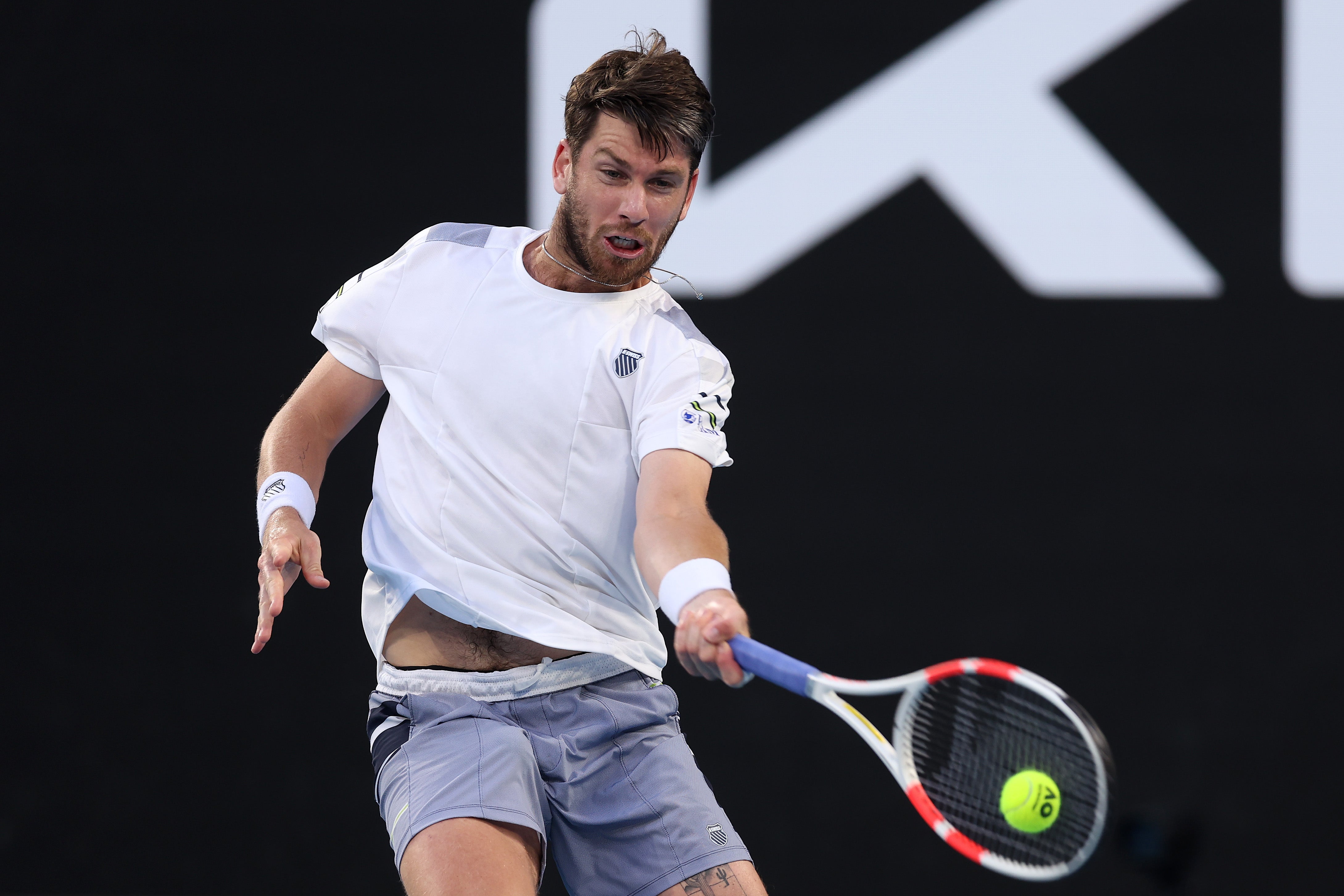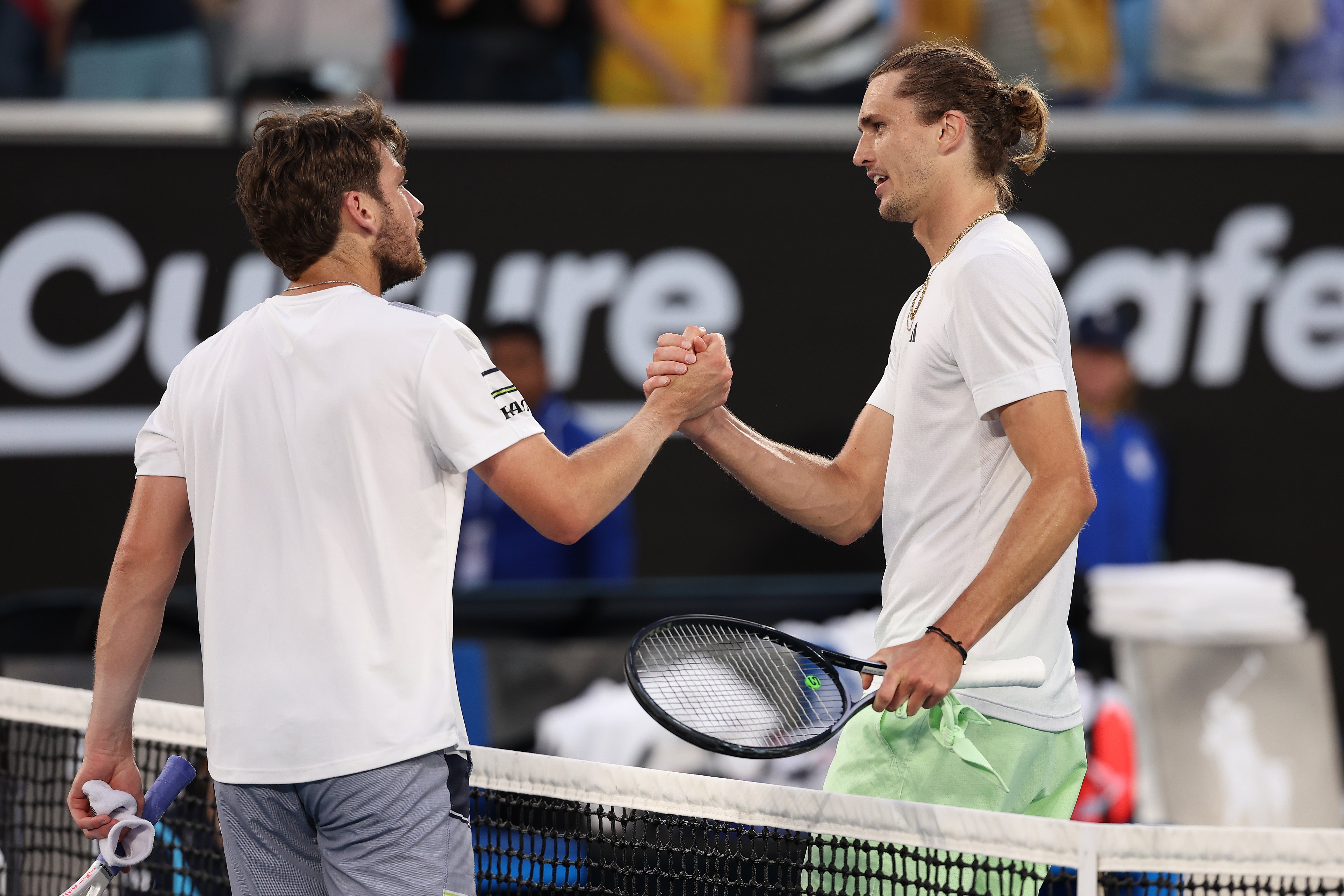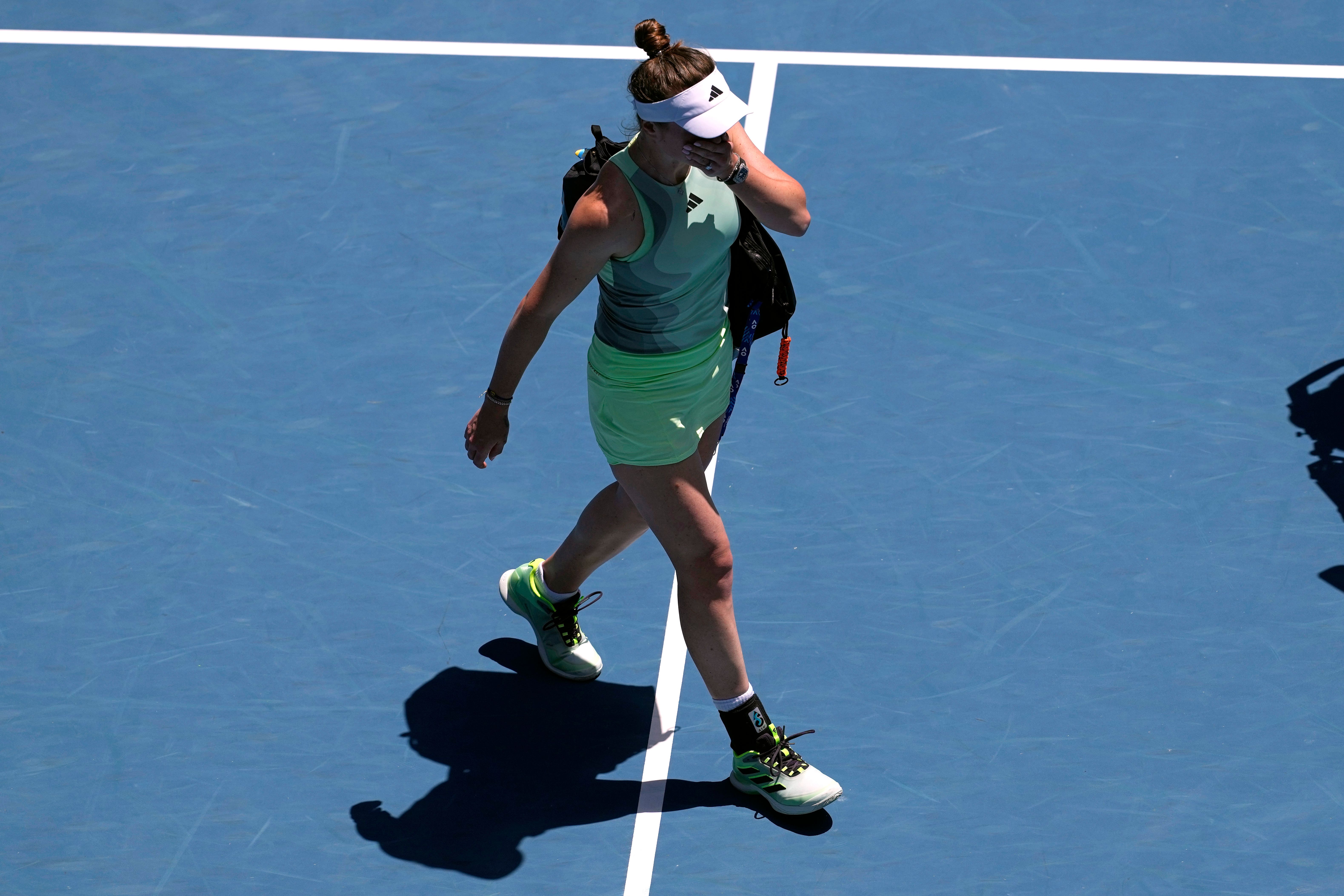Cameron Norrie’s new approach can challenge the best at grand slams – now he must persevere with it
The British No 1 missed out on a place in the Australian Open quarter-finals after losing a final-set tie-break to Alexander Zverev – but can take plenty of positives from his run in Melbourne

Your support helps us to tell the story
From reproductive rights to climate change to Big Tech, The Independent is on the ground when the story is developing. Whether it's investigating the financials of Elon Musk's pro-Trump PAC or producing our latest documentary, 'The A Word', which shines a light on the American women fighting for reproductive rights, we know how important it is to parse out the facts from the messaging.
At such a critical moment in US history, we need reporters on the ground. Your donation allows us to keep sending journalists to speak to both sides of the story.
The Independent is trusted by Americans across the entire political spectrum. And unlike many other quality news outlets, we choose not to lock Americans out of our reporting and analysis with paywalls. We believe quality journalism should be available to everyone, paid for by those who can afford it.
Your support makes all the difference.As Cameron Norrie painstakingly chopped one final forehand into the net, with his opponent’s arms victoriously aloft, so British interest in the singles at the Australian Open concluded for another year.
The British No 1 came so close to a first-ever victory over towering sixth seed Alexander Zverev in the fourth round on Monday, but missed out in a fifth-set tie-break after more than four hours of captivating action, via a 7-5, 3-6, 6-3, 4-6, 7-6 (3) scoreline. It was cruel, after so much effort exerted, but the 28-year-old can be optimistic about his season after a change of tack this fortnight which made quite the imprint.
Because Norrie has forged a career quite supremely and commendably through the unrelenting grind. His consistency and swinging left-handed action, alongside swift movement and a strong mentality, have led him to great heights. An appearance in the Wimbledon semi-finals in 2022. A Masters 1000 title in Indian Wells a year earlier. A top-10 ranking, peaking at No 8.

He also voyaged into the unknown for British players, attacking the “Golden Swing” on the clay of South America last year – and beating Carlos Alcaraz in the final in Sao Paulo.
But a disappointing end to last year triggered a change. Alongside long-term coach Facundo Lugones – pals from their time at Texas Christian University in Fort Worth – Norrie added former Wimbledon doubles champion Stephen Huss to his camp in the off-season. It was a “different eye”, as Norrie described. And the benefits of the Australian’s involvement are already showing.
After coming back from two sets down in the second round – reversing such a deficit for the third time in his career – Norrie triumphed in the last 32 over former French Open finalist Casper Ruud for the first time with a new sprinkling array of attacking tennis. Aggressive approach shots, rally-winning volleys and exquisitely timed drop shots. Monday against Zverev was no different – and when the wheels were spinning, Norrie had the upper hand.
The first set of nip and tuck on serve saw Norrie blink first. Another break for Zverev early in the second set, however, sparked Norrie into life. Norrie was suddenly taking control, sprinting around the court not in defence but in attack, moving his feet into position quickly to strike off both sides with power and precision. His work at the net was, on the whole, efficient while the odd drop shot thrown in gave Zverev – notoriously deep in defence – an element of surprise to which he failed to adapt. A couple of quickfire breaks and the second set was Norrie’s.
The third set followed a similar-ish pattern to the first; the fourth set similar to the second. Norrie again accelerated through the gears late in the fourth – in attack, not defence – to send it to a decider. In contrast to the five-setter which took place a night earlier, the swashbuckling crushing of the ball between Andrey Rublev and Alex de Minaur, this contest had more in the way of variety and shortening of points. More often than not, that worked in Norrie’s favour.
But right at the end, come the high-stake pressure vacuum of a 10-point tiebreak, Norrie’s aggressiveness faltered. The Brit lost his range – and lost the match. While the pair were close in terms of winners – 54 for Zverev, 56 for Norrie – the Brit hit 63 unforced errors compared to 41 for Zverev. It will be Zverev to take on Carlos Alcaraz in the last eight on Wednesday.
Yet Norrie’s intentions were, undoubtedly, the correct path to take. While patiently trading groundstrokes is likely to overcome most lower-ranked opponents, that is not enough against the likes of Alcaraz, Sinner and Zverev. Norrie should persevere in the next few months with his fresh, forward-thinking intent.

Reassuringly, it seems like he knows it too. “It’s disappointing but I think it’s nice to know I’m just looking for ways to evolve my game,” Norrie said afterwards. “I was toe-to-toe with him. I got absolutely chopped by him in Vienna at the end of last year, and I managed to take a completely different approach.”
The more regularly he trials attacking tennis, the more accustomed and comfortable he will feel in crunch time amid the crucial stages of grand slam tennis. And then he could, despite the vast collection of powerful big hitters at the top of the sport, challenge the very best in the biggest fortnights of the year.
Svitolina bows out through injury as Alcaraz progresses comfortably
A tearful Elina Svitolina was forced to retire with a back injury only three games into her fourth-round clash with Linda Noskova at the Australian Open on Monday.
The former world No 3, who has made a very impressive return following the birth of daughter Skai last year, appeared the favourite to make the final from a wide-open top half of the draw.
But her back locked up in the first game of the match and she sobbed as she called it a day when trailing 3-0.

Carlos Alcaraz eased into the last eight in Melbourne for the first time, with a straight-sets win over Miomir Kecmanovic, while Zheng Qinwen is the only seed left in the top half of the women’s draw after her win over Oceane Dodin.
The quarter-finals get under way on Tuesday, with Novak Djokovic again given a day-session slot for his clash with American Taylor Fritz.
Coco Gauff is first up, taking on unseeded Ukrainian Marta Kostyuk, while defending women’s champion Aryna Sabalenka plays Barbora Krejcikova at night.
The final match of the day pits fourth seed Jannik Sinner, who is yet to drop a set, against fifth seed Andrey Rublev.
Join our commenting forum
Join thought-provoking conversations, follow other Independent readers and see their replies
Comments